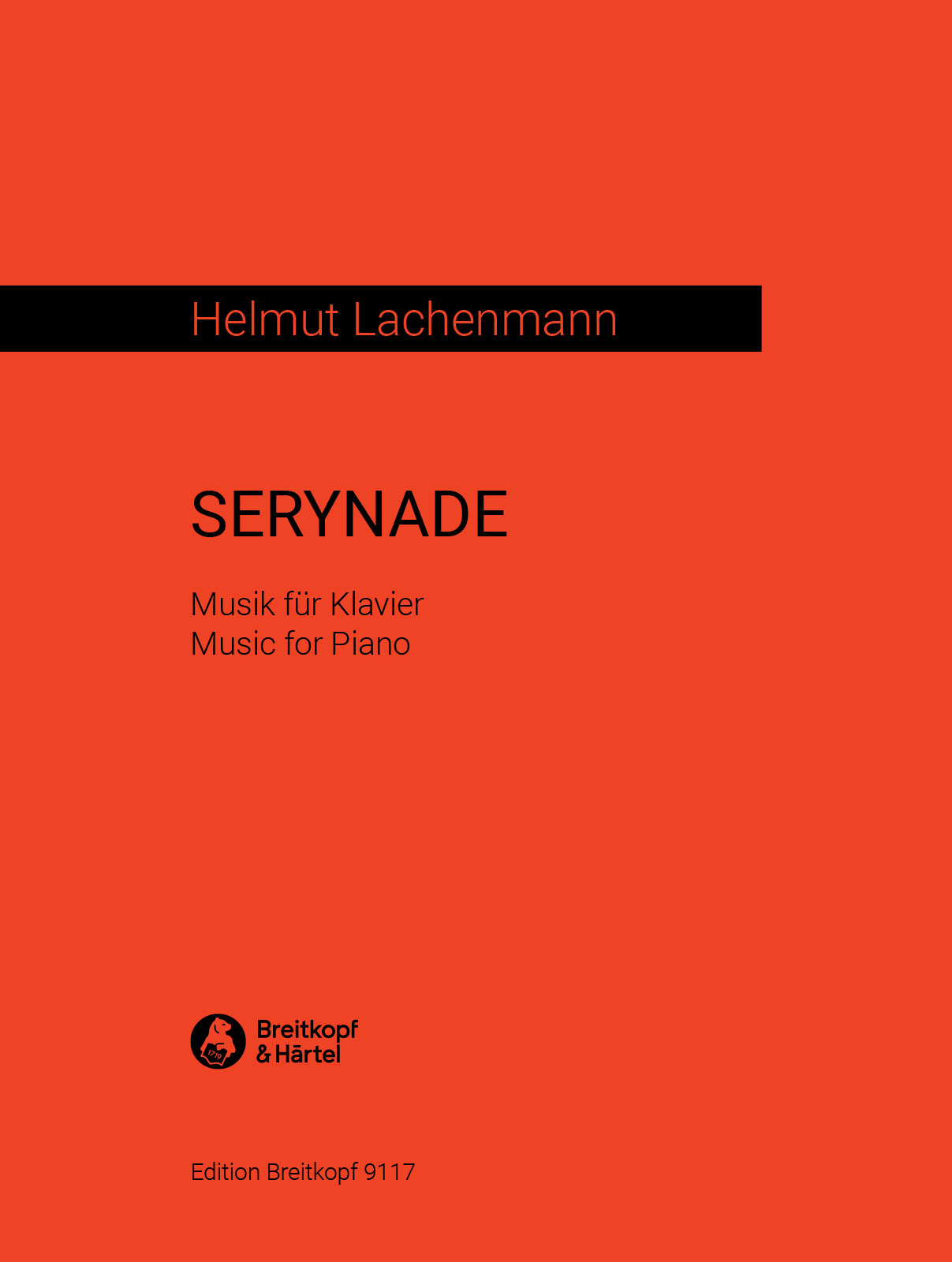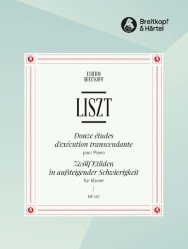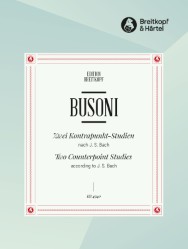SERYNADE
Music for Piano

| Product Code: | 979-0-004-81997-5 |
| ISMN: | 979-0-004-81997-5 |
| Publishers Number: | EB 9117D |
| Page count: | 44 |
| Condition: | New |
Lachenmann's (first) full-length piano work
The title "Serynade" is easy to explain: The name of its dedicatee, Yukiko Sugawara, has smuggled itself into the well-known genre…
The title “Serynade” is easy to explain: The name of its dedicatee, Yukiko Sugawara, has smuggled itself into the well-known genre of the “serenade” in the form of the “Y”, the first letter of her first name. The Japanese pianist has since played “Serynade”, Helmut Lachenmann’s first large-scale piano piece, at many international concert venues to resounding success.
Instructions for amplification of the echo:
In halls where the echoes of the harmonics cannot be heard well, or when the available piano only produces weak echoes of the harmonics, one should make use of microphones or an electric amplification of the resonances.
Needed are:
– an interfacial microphone, PZM/CROWN, which should be placed where it is best suited, i. e. in the Steinway D piano in the inside of the case, close to the third sound hole, thus close to the incurvation at about the level of the strings for g1.
– a high-quality loudspeaker which is placed under the piano and beams the sound upwards at an angle, to the rear.
– a valve compressor with short attack cycles, with a good equalizer (parametrical equalizer), with a regulator for frequence, gain and bandwidth, so as to eliminate the resulting feed-back frequencies; if necessary, a graphic equalizer can also be used.
Provisions must be made for a technical rehearsal.
(Helmut Lachenmann, 1999)
The piano is one of those instruments on which the compositional aesthetics central to Helmut Lachenmann have manifested themselves in a special way.
If, with “Guero” from the year 1970, he had completely made the instrument “unmusical” in the traditional sense and dispensed with ordinary harmony, then the “Serynade”, which was premiered in Japan in 1998, has similarities with compositions like “Echo andante” of 1962 and the “Kinderspiel” (Childs play) pieces of 1980. Loud sounds give way to a highly sophisticated exploration of the “orthodox” sounds of the piano, without the body of the piano itself being of constitutive importance as it is in the case of “Guero”.
Through the complex metamorphosis of isolated (individual) notes or chords suspended in time by use of the pedals, sounds are created, whose reverberations change, depressed keys modulate the sostenuto, resonances and “flageolettes” (harmonics) insert themselves and proceed to develop into a “new type of melody” (Lachenmann), or, in the words of Ferruccio Busoni “…it hovers. It does not subject to gravity. It is almost ethereal. Its substance is transparent. It is air which resounds. It is almost nature itself. It is free.” (Entwurf einer neuen Ästhetik der Tonkunst, Triest/Leipzig 1907/16)
But “naked” sounds so to speak, also resound, ones which are produced virtuoso and fortissimo. The “Serynade”, the exorbitant serenade of Lachenmann for his wife, the pianist Yukiko Sugawara (to which the sound-modulated title refers), flows through these extremes. Perhaps the shadowy sounds of the strings also evoke the instrument normally associated with this genre – the guitar – an instrument, admittedly, which is not one of those on which Lachenmann prefers to exemplify his aesthetics. [Although Lachenmann has also written a remarkable work for two guitars, “Salut für Caudwell”].
Horst Scholz, translated by Robert Foot, edited by Richard Steinitz
(program notes for the Huddersfield Festival 2000)
R.R.P £45.00
Our Price: £38.00
Digital Download – PDF
Shipping costs: No shipping
Please create and forward a copy of this publication to the customer




